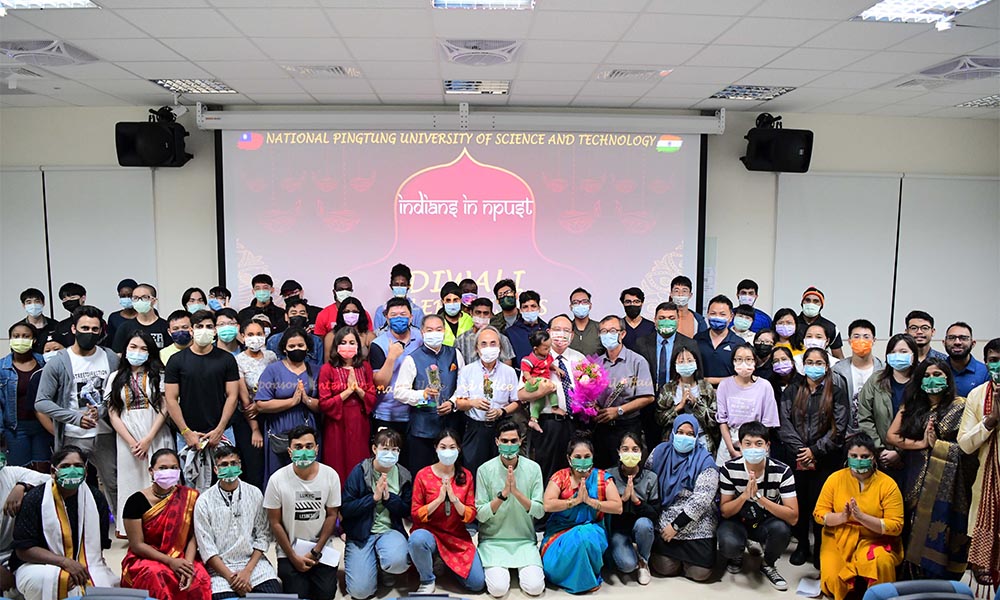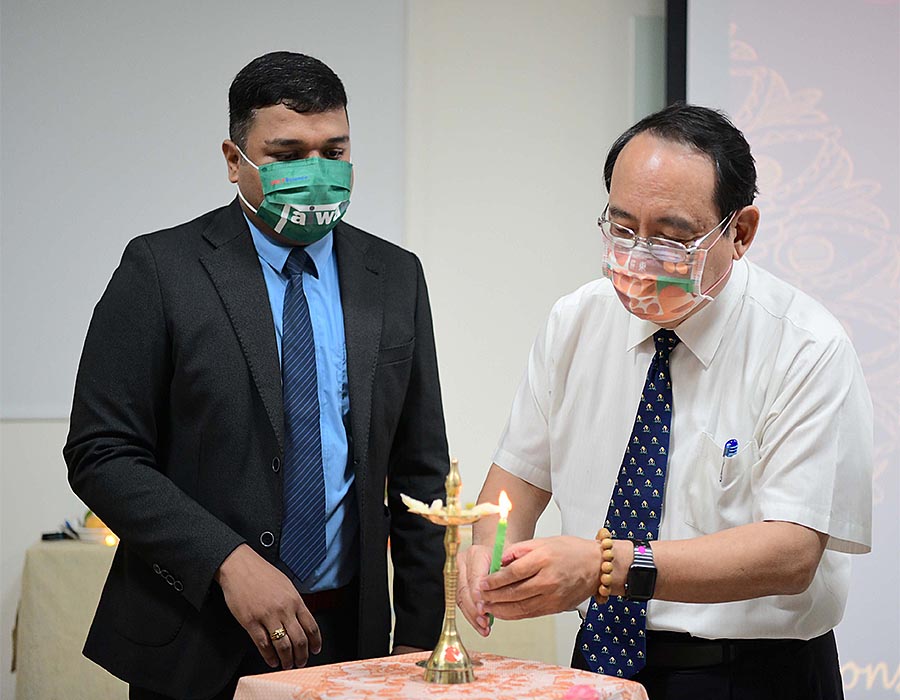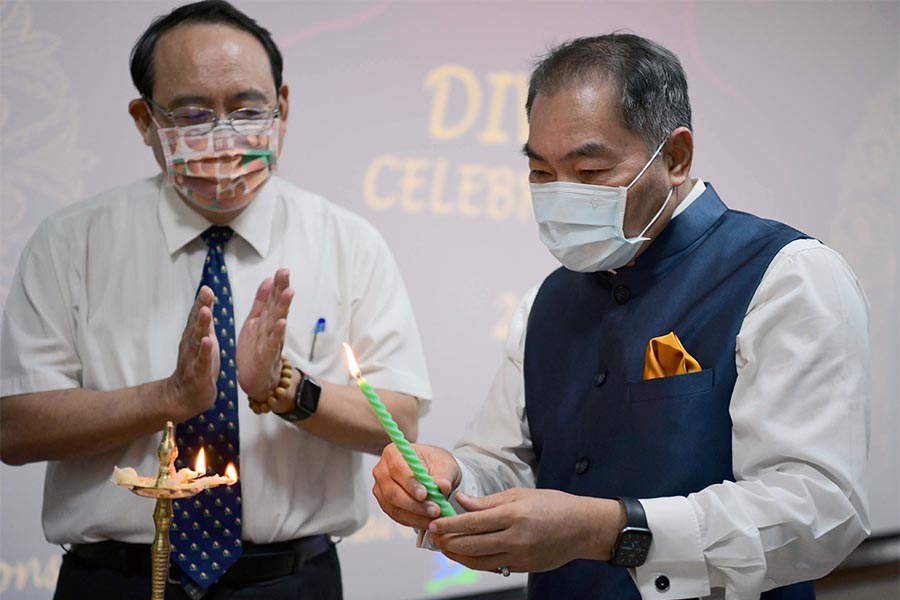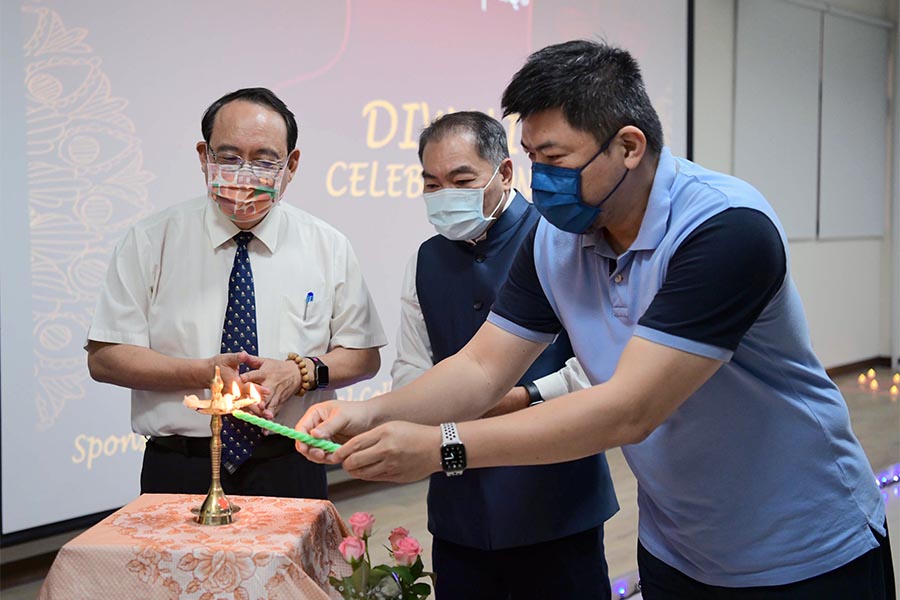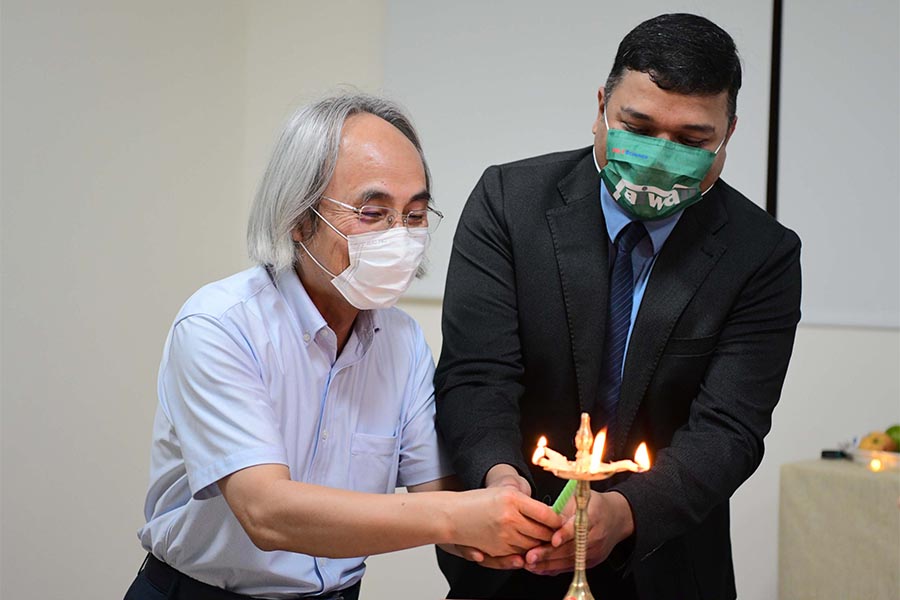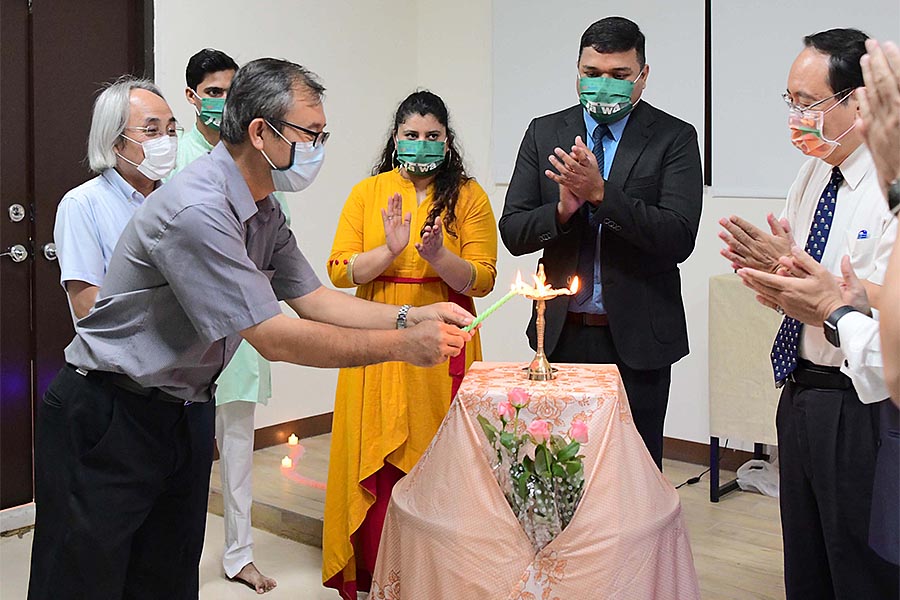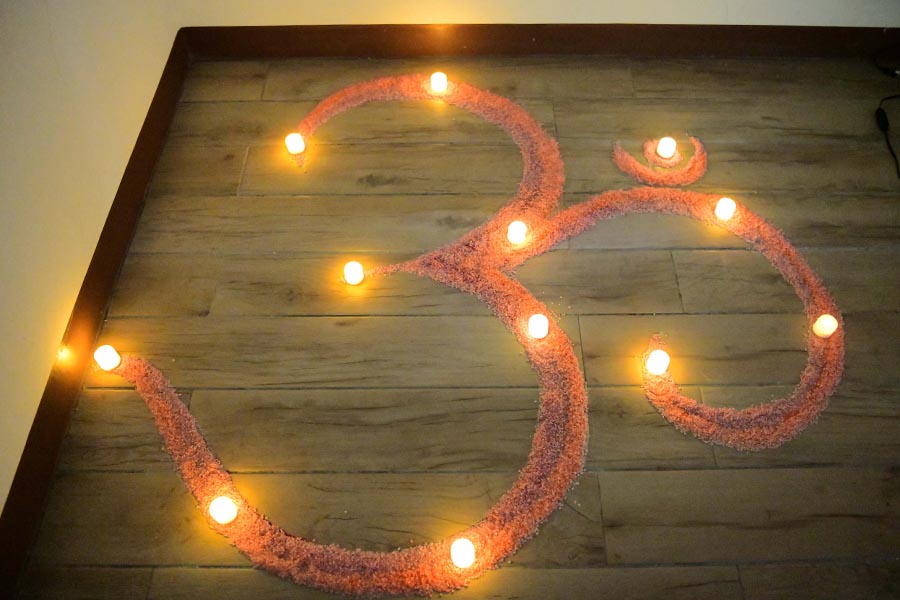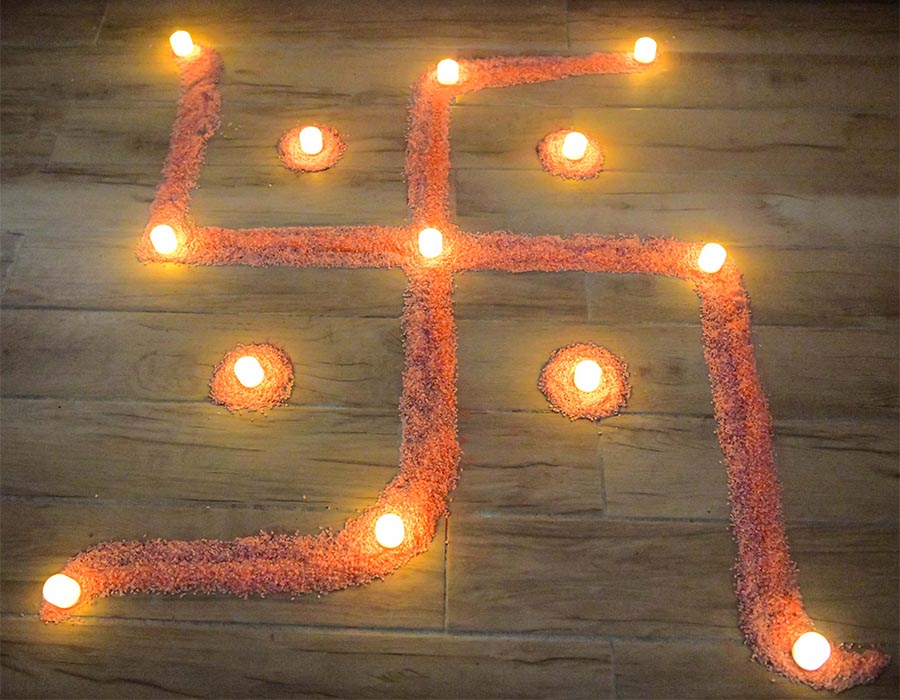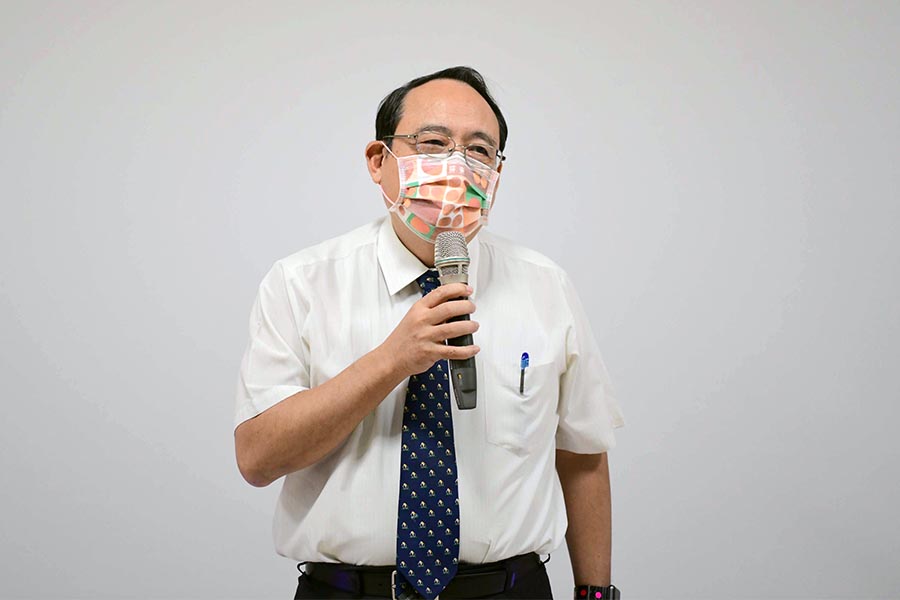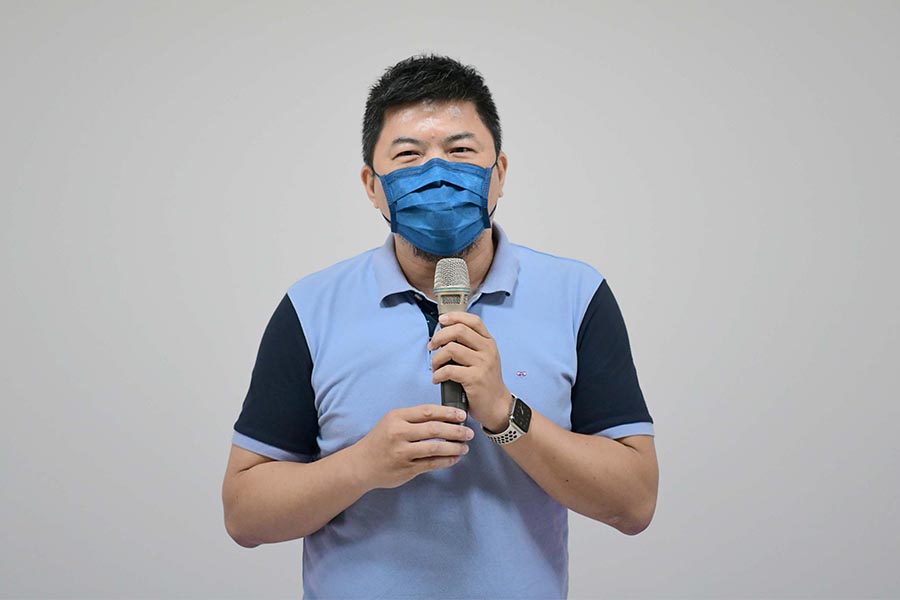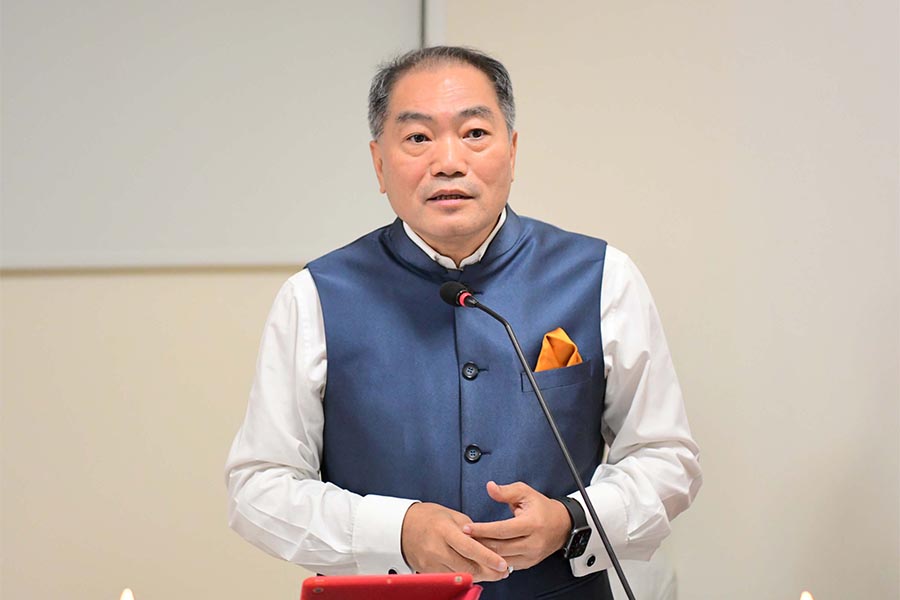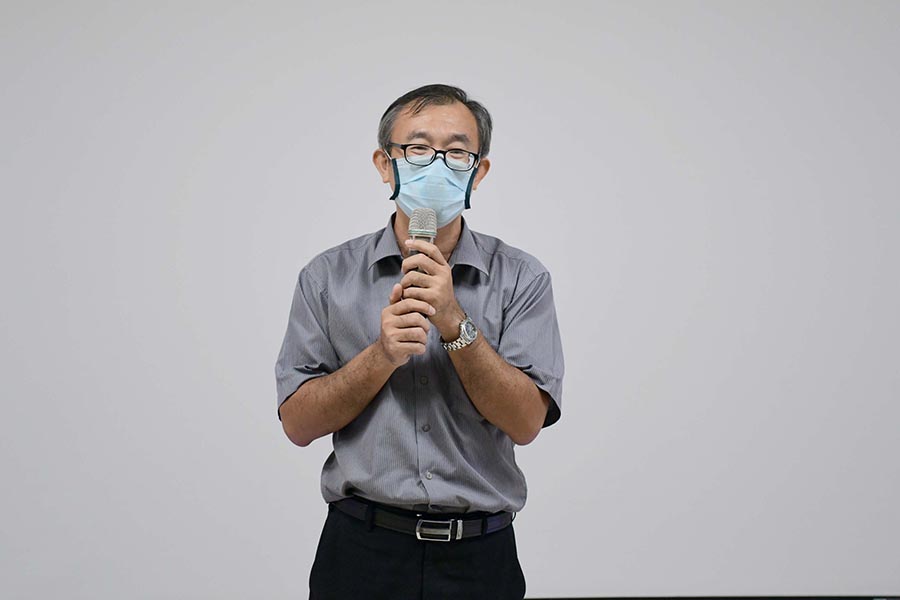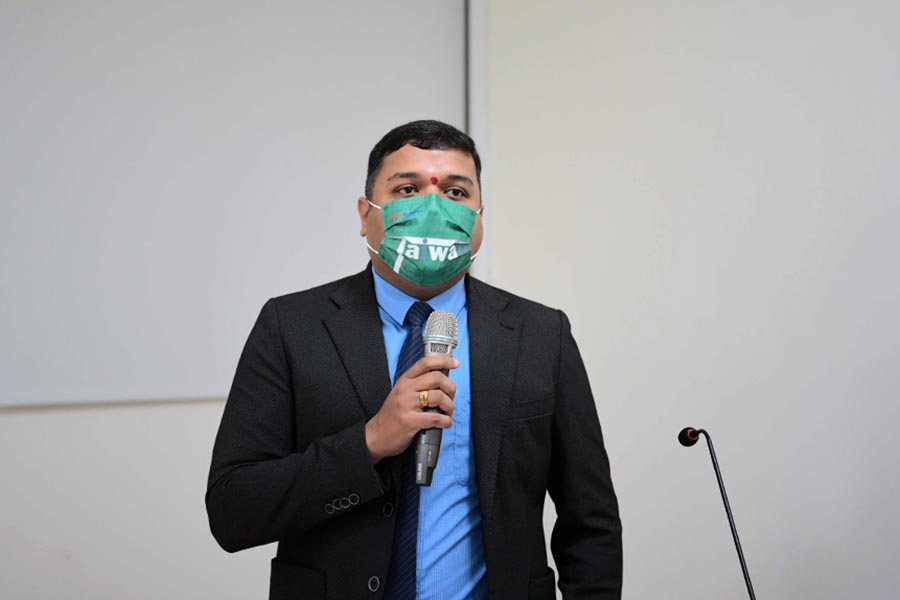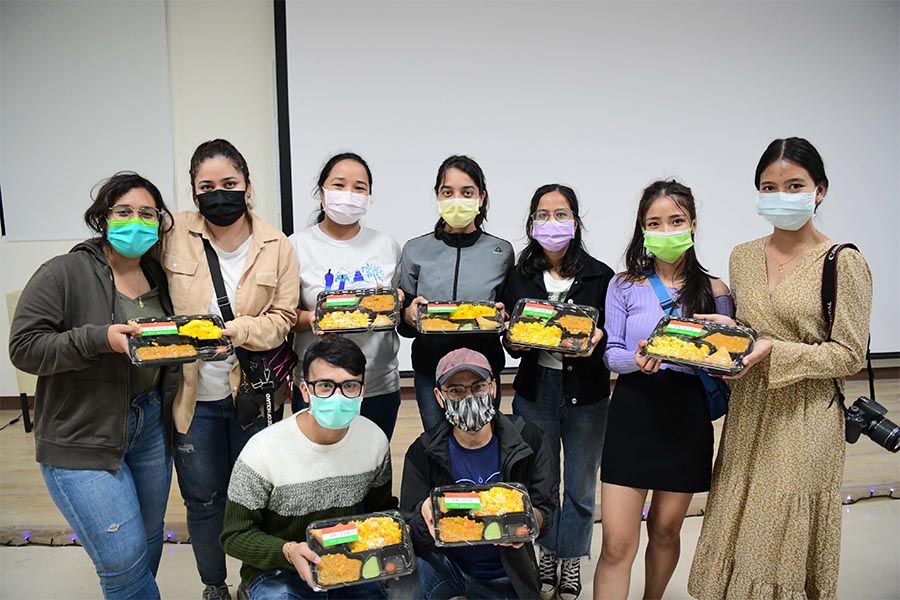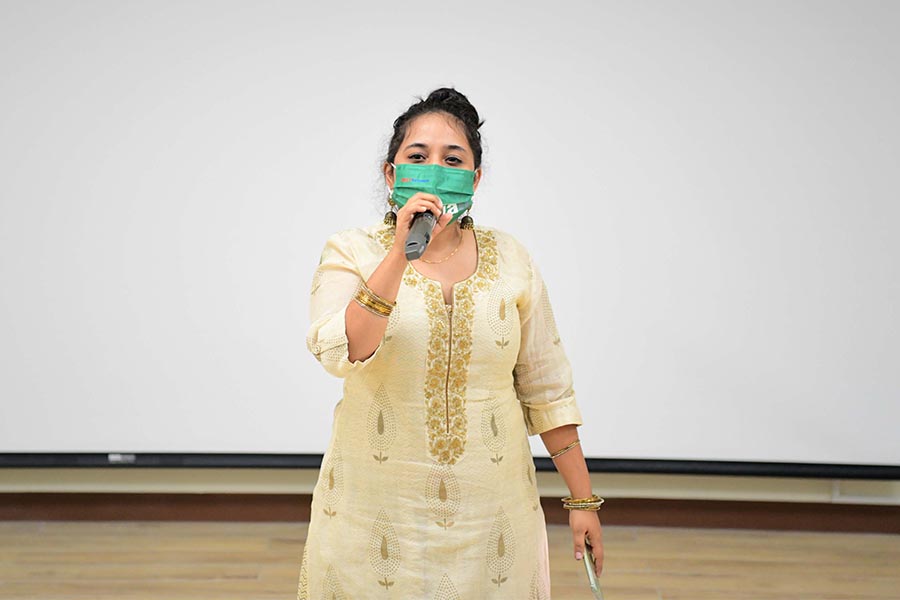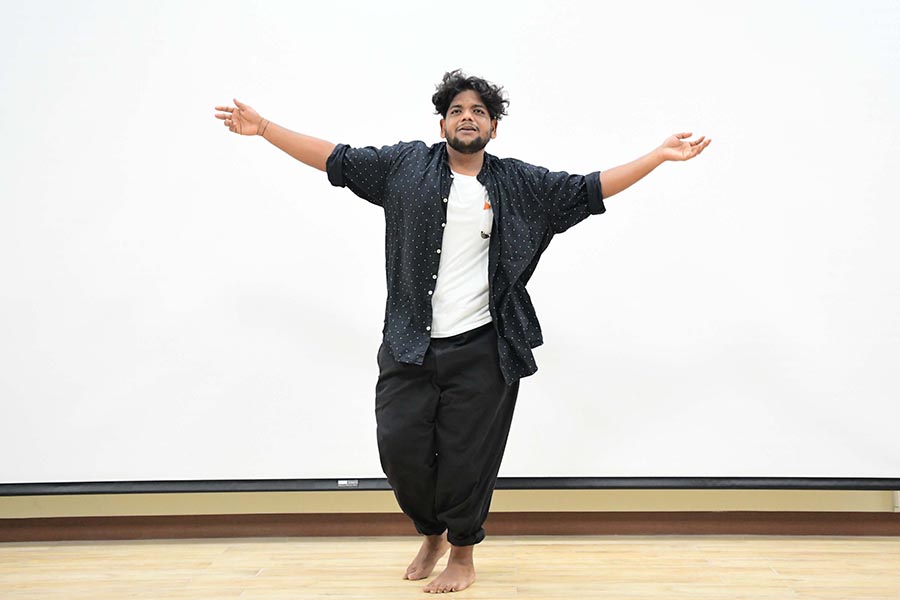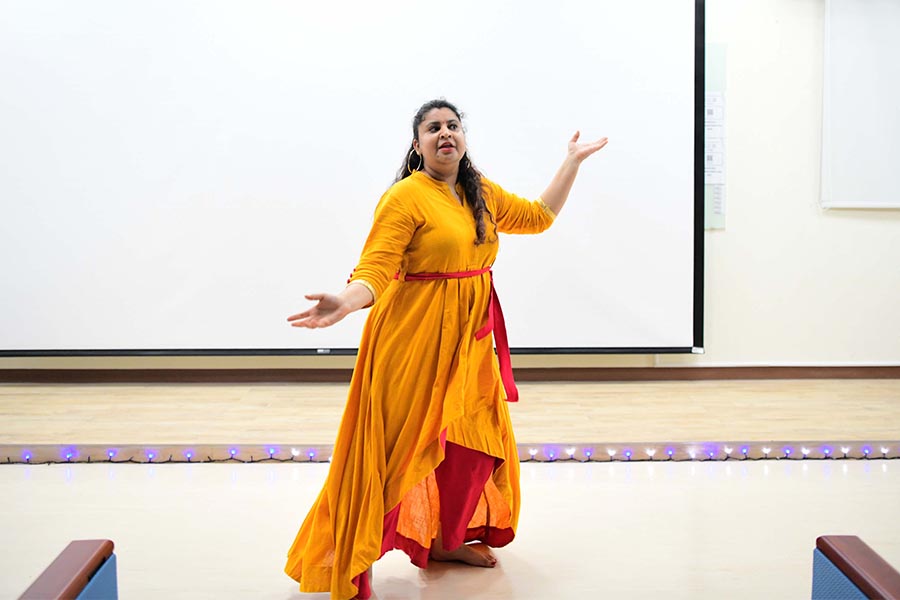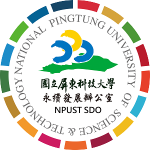HAPPY DIWALI!The annual Indian festival of lights has arrived, and on November 3rd, the International College hosted a special activity to celebrate the occasion. The NPUST Indian Student Association organized the event, which included a candle lighting ceremony, Indian dancing, a traditional costume fashion show, and cuisine sharing. Students from the university, regardless of nationality, were welcomed to join the celebrations and experience authentic Indian customs as their Indian classmates ushered in the New Year.
NPUST’s president, Chang-Hsien Tai, said: “We are very happy to participate in the Diwali Festival organized by the Indian Student Association. Similar to Chinese New Year, the lighting of a lamp and prayers for blessings drive away darkness and evil. Even though we come from different cultures, I trust that being free from calamity and having world peace is what people all over the world are seeking. Even though this is an important time of celebration, the pandemic is preventing families from coming together. Nevertheless, NPUST is a family in Taiwan to everyone, and we hope that students from different countries will share their cultures with one another, laugh together, learn together, and overcome challenges together. The big NPUST family will always be your place of refuge.”
Dean of the International College, Jik-Chang Leong, also encouraged the students, stating that “the International College is a great environment that allows student from different countries to interact with one another and learn together. Although, at the beginning, we might not understand one another’s customs or languages, but through exchange and communication, everyone is able to experience the beauty of each other’s culture in the same space—just like with the Diwali Festival we are celebrating this evening. Through the sharing by our Indian school-mates, we can get a feel for the significance of this celebration. NPUST allows us to remove barriers and enjoy the global village of our campus. So, when you see a student from India or another country, give them a big “hello” and welcome them to Taiwan!”
The dean of the College of Agriculture, Henry Chen, addressed the students in Hindi, saying “I’m very happy to celebrate with everyone, and very happy to see students from India studying at NPUST— and that they are sharing their Diwali celebration with us in Taiwan for the first time. We hope that NPUST will be able to continuously provide friendly assistance in many things and that in the future, the Indian students currently at NPUST will become pillars of knowledge, science and cultural development in India; and we sincerely welcome more students from India to come study at NPUST in the future”.
The dean of the Office of International Affairs, Pomin Li, said: “India’s Diwali Festival is a very important celebration. Not only does it signify the penetration of darkness and evil by light, it is also a time of family reunion—when families go together to the temples to pray for blessings. We hope that everyone will be able to enjoy the beauty of the festival at NPUST just as they would in India.”
In the “Traditional Costume Fashion Sow”, international and local students served as the models and were dressed up in golden colored traditional costume. The fashion show was one of the highlights of the event. Currently, there are 13 students from India studying at NPUST and two faculty members from India on staff. The activity not only allowed the Indian students to enjoy feelings from home, it also allowed Taiwan students and students from other countries to experience traditional Indian customs. In Indian culture, the welcoming of the Indian New Year is a time of family reunion. The light signifies the “knowledge” and “brilliance” within a person’s heart; the driving away of ignorance and darkness; and a sense of peace in the depths of people’s souls, with expectations of a better year ahead.
NPUST is dedicated to creating a friendly multi-lingual learning environment for students. Not only does it provide care and support for its international members, but also allows them to quickly integrate into their student lives in Taiwan—and through activities such as these, to get better understandings of the cultures of their classmates from all over the world.



